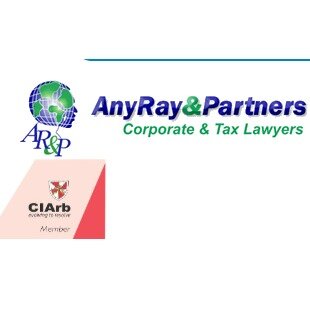Best Employer Lawyers in Ivory Coast
Share your needs with us, get contacted by law firms.
Free. Takes 2 min.
Or refine your search by selecting a city:
List of the best lawyers in Ivory Coast
About Employer Law in Ivory Coast:
Employer law in Ivory Coast governs the relationship between employers and employees in the country. It covers aspects such as hiring, working conditions, wages, benefits, termination, and disputes resolution.
Why You May Need a Lawyer:
You may need a lawyer in Ivory Coast for Employer issues if you are facing wrongful termination, discrimination, harassment, non-payment of wages, or if you need help drafting or reviewing employment contracts.
Local Laws Overview:
In Ivory Coast, the labor code regulates Employer relationships. Employers must comply with laws regarding minimum wage, working hours, paid leave, social security contributions, and termination procedures. Both employers and employees have rights and obligations outlined in the labor code.
Frequently Asked Questions:
1. What is the minimum wage in Ivory Coast?
The minimum wage in Ivory Coast is set by the government and varies depending on the sector. As of 2021, it is XOF 60,000 per month for the non-agricultural sector.
2. Can an employer terminate an employee without cause?
No, employers in Ivory Coast cannot terminate an employee without a valid reason. They must follow the procedures outlined in the labor code and provide appropriate notice or severance pay.
3. Are employers required to provide paid leave?
Yes, employers in Ivory Coast are required to provide paid leave to their employees. The number of days depends on the length of service and type of work.
4. What are the rights of employees regarding workplace safety?
Employees have the right to a safe workplace in Ivory Coast. Employers are obligated to provide a safe working environment, including proper training, equipment, and measures to prevent accidents.
5. Can employees unionize in Ivory Coast?
Yes, employees have the right to unionize in Ivory Coast. Unions play a significant role in protecting workers' rights and negotiating collective agreements with employers.
6. How can I file a complaint against my employer?
If you have a complaint against your employer, you can file a case with the labor courts in Ivory Coast. It is advisable to seek legal advice before proceeding.
7. What are the penalties for employers who violate labor laws?
Employers who violate labor laws in Ivory Coast may face fines, penalties, or legal action. They could also be required to compensate employees for any damages caused.
8. Are there any restrictions on hiring foreign employees?
Yes, there are restrictions on hiring foreign employees in Ivory Coast. Employers must follow specific procedures and requirements when employing foreigners, such as obtaining work permits.
9. Can an employer change the terms of an employment contract?
An employer can only change the terms of an employment contract with the agreement of the employee. If an employer makes unilateral changes, it may constitute a breach of contract.
10. How long does an employer have to keep employee records?
Employers in Ivory Coast must keep employee records and documents for at least ten years. This includes information such as contracts, pay slips, and disciplinary actions.
Additional Resources:
For more information and assistance with Employer law in Ivory Coast, you can contact the Ministry of Employment and Social Protection or seek help from legal organizations such as the Bar Association.
Next Steps:
If you require legal assistance with Employer issues in Ivory Coast, it is advisable to consult with a qualified attorney who specializes in labor law. They can provide guidance on your rights, options, and the best course of action to take in your situation.
Lawzana helps you find the best lawyers and law firms in Ivory Coast through a curated and pre-screened list of qualified legal professionals. Our platform offers rankings and detailed profiles of attorneys and law firms, allowing you to compare based on practice areas, including Employer, experience, and client feedback.
Each profile includes a description of the firm's areas of practice, client reviews, team members and partners, year of establishment, spoken languages, office locations, contact information, social media presence, and any published articles or resources. Most firms on our platform speak English and are experienced in both local and international legal matters.
Get a quote from top-rated law firms in Ivory Coast — quickly, securely, and without unnecessary hassle.
Disclaimer:
The information provided on this page is for general informational purposes only and does not constitute legal advice. While we strive to ensure the accuracy and relevance of the content, legal information may change over time, and interpretations of the law can vary. You should always consult with a qualified legal professional for advice specific to your situation.
We disclaim all liability for actions taken or not taken based on the content of this page. If you believe any information is incorrect or outdated, please contact us, and we will review and update it where appropriate.
Browse employer law firms by city in Ivory Coast
Refine your search by selecting a city.












